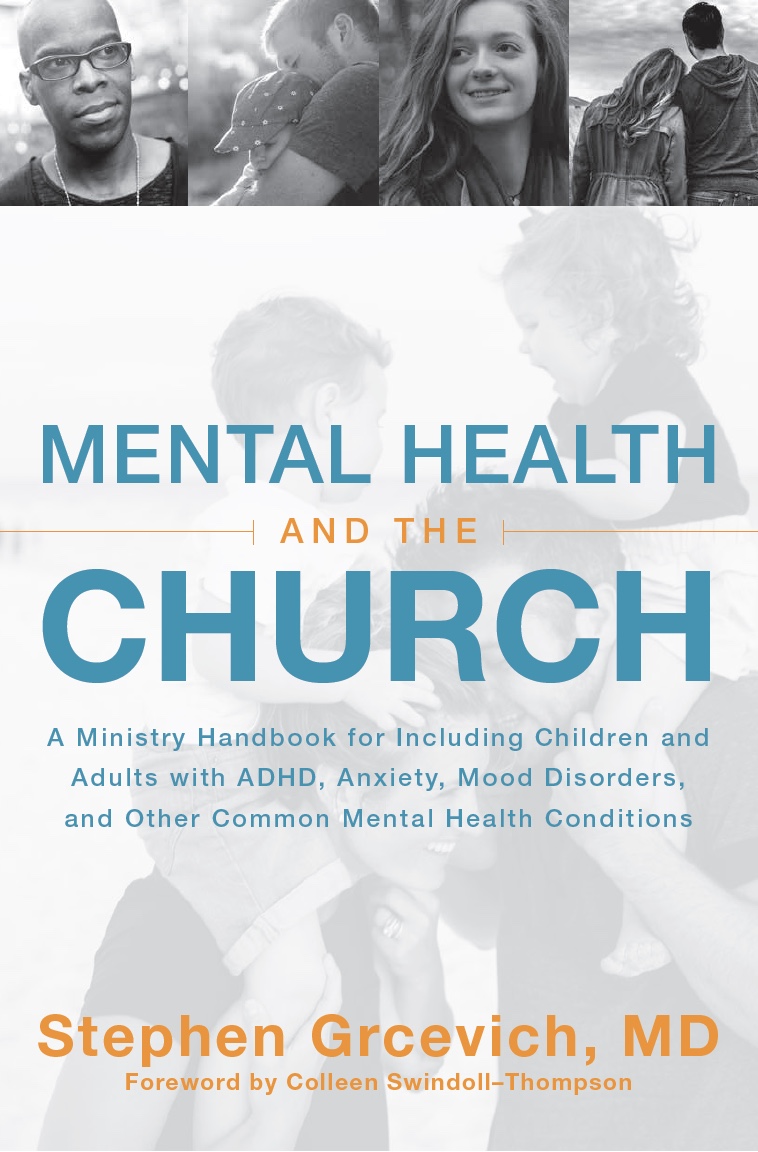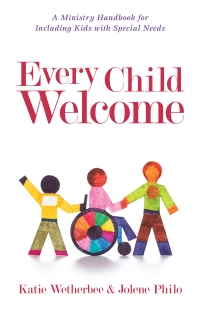 Stephen Grcevich, MD, a child and adolescent psychiatrist and Key Ministry President, developed this series of blog posts for a teaching series conducted from September 17-November 5, 2013. Links to the posts in the series are presented here, along with a list of recommended resources for pastors, church staff, volunteers and parents seeking to serve kids and teens with depression and their families. For additional free resources and support in ministering to kids with disabilities and their families, check out the Key Ministry website.
Stephen Grcevich, MD, a child and adolescent psychiatrist and Key Ministry President, developed this series of blog posts for a teaching series conducted from September 17-November 5, 2013. Links to the posts in the series are presented here, along with a list of recommended resources for pastors, church staff, volunteers and parents seeking to serve kids and teens with depression and their families. For additional free resources and support in ministering to kids with disabilities and their families, check out the Key Ministry website.
September 17: The Many Types of Childhood Trauma
September 24: Why is Trauma More Traumatizing for Some Kids?
September 26: Trauma and Kids: A look at the Numbers
October 1: The Impact of Trauma on the Developing Brain
October 3: The Enduring Effects of Trauma and Abuse in Childhood
October 9: Why It’s So Hard to Assess Kids for the Potential Effects of Trauma
October 16: When Do the Effects of Trauma Cross the Line Into PTSD?
October 22: Complicated Kids…Teasing Out the Effects of Trauma From Mental Illness
October 24: Treating the Traumatized Child or Teen
October 30: What Do We Know About Medication in Kids with PTSD?
October 31: When Kids With Developmental Disabilities Experience Trauma
November 6: Understanding Traumatic Stress Response in Children and Families…The Twelve Core Concepts
Additional resources:
 National Child Traumatic Stress Network: Established by Congress in 2000, the National Child Traumatic Stress Network (NCTSN) brings a singular and comprehensive focus to childhood trauma. NCTSN’s collaboration of frontline providers, researchers, and families is committed to raising the standard of care while increasing access to services. Combining knowledge of child development, expertise in the full range of child traumatic experiences, and dedication to evidence-based practices, the NCTSN changes the course of children’s lives by changing the course of their care.
National Child Traumatic Stress Network: Established by Congress in 2000, the National Child Traumatic Stress Network (NCTSN) brings a singular and comprehensive focus to childhood trauma. NCTSN’s collaboration of frontline providers, researchers, and families is committed to raising the standard of care while increasing access to services. Combining knowledge of child development, expertise in the full range of child traumatic experiences, and dedication to evidence-based practices, the NCTSN changes the course of children’s lives by changing the course of their care.
The Network is funded by the Center for Mental Health Services, Substance Abuse and Mental Health Services Administration, US Department of Health and Human Services through a congressional initiative: the Donald J. Cohen National Child Traumatic Stress Initiative. As of November 2009 the Network comprises 60 members. Affiliate members—sites that were formerly funded—and individuals currently or previously associated with those sites continue to be active in the Network as affiliates.
 Jolene Philo: PTSD and Kids With Special Needs Post-Traumatic Stress Disorder (PTSD) is a mental disorder most commonly associated with combat veterans that also affects children with special needs. In Jolene’s Inclusion Fusion presentation, she discusses six common myths and misconceptions about PTSD in children. She also authored an outstanding post on trauma in newborns that is among our most frequently shared resources.
Jolene Philo: PTSD and Kids With Special Needs Post-Traumatic Stress Disorder (PTSD) is a mental disorder most commonly associated with combat veterans that also affects children with special needs. In Jolene’s Inclusion Fusion presentation, she discusses six common myths and misconceptions about PTSD in children. She also authored an outstanding post on trauma in newborns that is among our most frequently shared resources.
 Empowered to Connect, led by Dr. Karyn Purvis and Michael & Amy Monroe, offers a wide array of resources for adoptive and foster parents. They are all about helping parents create strong and lasting connections with their children in order to help them heal and become whole. They maintain an online library of articles, audio and video presentations covering a wide variety of topics for adoptive and foster parents as well as ministry leaders and professionals.
Empowered to Connect, led by Dr. Karyn Purvis and Michael & Amy Monroe, offers a wide array of resources for adoptive and foster parents. They are all about helping parents create strong and lasting connections with their children in order to help them heal and become whole. They maintain an online library of articles, audio and video presentations covering a wide variety of topics for adoptive and foster parents as well as ministry leaders and professionals.





Steve, I’d add to the list of resources Empowered To Connect: http://empoweredtoconnect.org/ They are doing amazing work to equip families and churches who are loving kids with foster- or adoption-related trauma. They partner with Dr. Karen Purvis at TCU, who wrote The Connected Child with colleagues which is one of the top resources in this area for adoptive and foster families, in a lot of what they do, so it’s not only biblically based but also research and practice driven.
LikeLike
Hi, I just wanted to say I am impressed with what I’ve seen here. I love your site, and have found your blog posts to be considerately worded, carefully researched, and accurate. I’m very happy to see this kind of outreach to those with disabilities, especially children! I’d also like to ask that TBI (Traumatic Brain Injury) survivors be recognized and included in your Ministry, as survivors of TBI are disabled in many ways our medical and social communities are not equipped to recognize yet. Perhaps this is because the majority of research that is funneled into TBI awareness has mostly been confined to veterans in the recent past. However, a shocking number of traumatic brain injuries are sustained not just on the battlefield, but on the playground, in our vehicles and homes, and on the sports fields, places our kids frequent every day. Not only is it a much overlooked condition, but is also very isolating to the survivors (and families) who are experiencing it. As a former reporter, freelance writer, and survivor of TBI from my own near-fatal car accident, I also advocate for TBI survivors. I hope your Ministry will reach out to these brave individuals and their families. Keep up the good work, bravo!
LikeLike
Alexis…Thanks for the kind words! Glad you found our stuff helpful.
LikeLike
Thank you for the information found in these blogs! We have a foster son who is (in the caseworker’s words) “so hard to figure out just exactly what is going on with him.” We have been told that he is ADHD/PDD and possibly RAD. He is being treated for PTSD in counseling and we have just discovered a “diagnosis” on some of their paperwork that is suggesting the PDD is actually Borderline Intellectual Functioning(which we understand is part of the PDD). Between looking up PDD, ADHD, RAD we have been finding a few helps but reading these PTSD seem to have some answers we hadn’t seen before. If you could lead us to some help for the BIF and schooling we would be ever so grateful. Our plan is to adopt this young man and we would like to get him started on the right track. We know that trauma on top of the BIF is what is making things so difficult, so we are looking towards those two areas instead of the others at this time. I figure they weren’t much help maybe the PTSD/BIF is the answer.
LikeLiked by 1 person